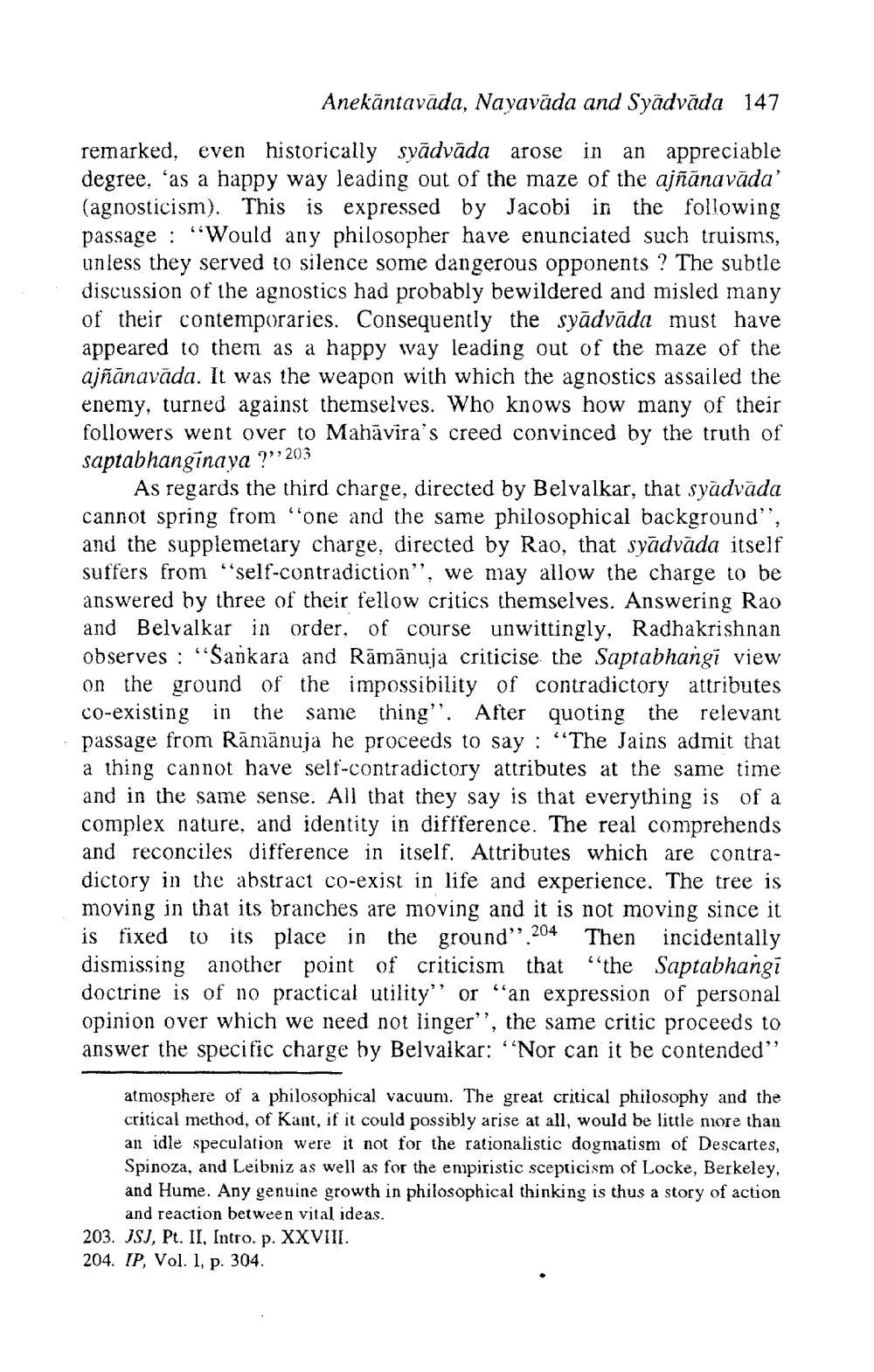________________
Anekāntavāda, Nayavāda and Syâdvāda 147
remarked, even historically syādvāda arose in an appreciable degree, ‘as a happy way leading out of the maze of the ajñānavāda' (agnosticism). This is expressed by Jacobi in the following passage : "Would any philosopher have enunciated such truisms, unless they served to silence some dangerous opponents ? The subtle discussion of the agnostics had probably bewildered and misled many of their contemporaries. Consequently the syādvāda must have appeared to them as a happy way leading out of the maze of the ajñānavāda. It was the weapon with which the agnostics assailed the enemy, turned against themselves. Who knows how many of their followers went over to Mahāvira's creed convinced by the truth of saptabhanginaya ?!? 203
As regards the third charge, directed by Belvalkar, that syadvada cannot spring from one and the same philosophical background", and the supplemetary charge, directed by Rao, that syādvāda itself suffers from “self-contradiction”, we may allow the charge to be answered hy three of their fellow critics themselves. Answering Rao and Belvalkar in order, of course unwittingly, Radhakrishnan observes : "Sankara and Rāmānuja criticise the Saptabhangi view on the ground of the impossibility of contradictory attributes co-existing in the same thing". After quoting the relevant passage from Rāmānuja he proceeds to say: "The Jains admit that a thing cannot have self-contradictory attributes at the same time and in the same sense. All that they say is that everything is of a complex nature, and identity in diffference. The real comprehends and reconciles difference in itself. Attributes which are contradictory in the abstract co-exist in life and experience. The tree is moving in that its branches are moving and it is not moving since it is fixed to its place in the ground"? 204 Then incidentally dismissing another point of criticism that "the Saptabhangi doctrine is of no practical utility” or “an expression of personal opinion over which we need not linger”, the same critic proceeds to answer the specific charge by Belvalkar: "Nor can it be contended”
atmosphere of a philosophical vacuum. The great critical philosophy and the critical method, of Kant, if it could possibly arise at all, would be little more than an idle speculation were it not for the rationalistic dogmatism of Descartes, Spinoza, and Leibniz as well as for the empiristic scepticism of Locke, Berkeley, and Hume. Any genuine growth in philosophical thinking is thus a story of action
and reaction between vital ideas. 203. ISI, Pt. II, Intro. p. XXVIII. 204. IP, Vol. 1, p. 304.




